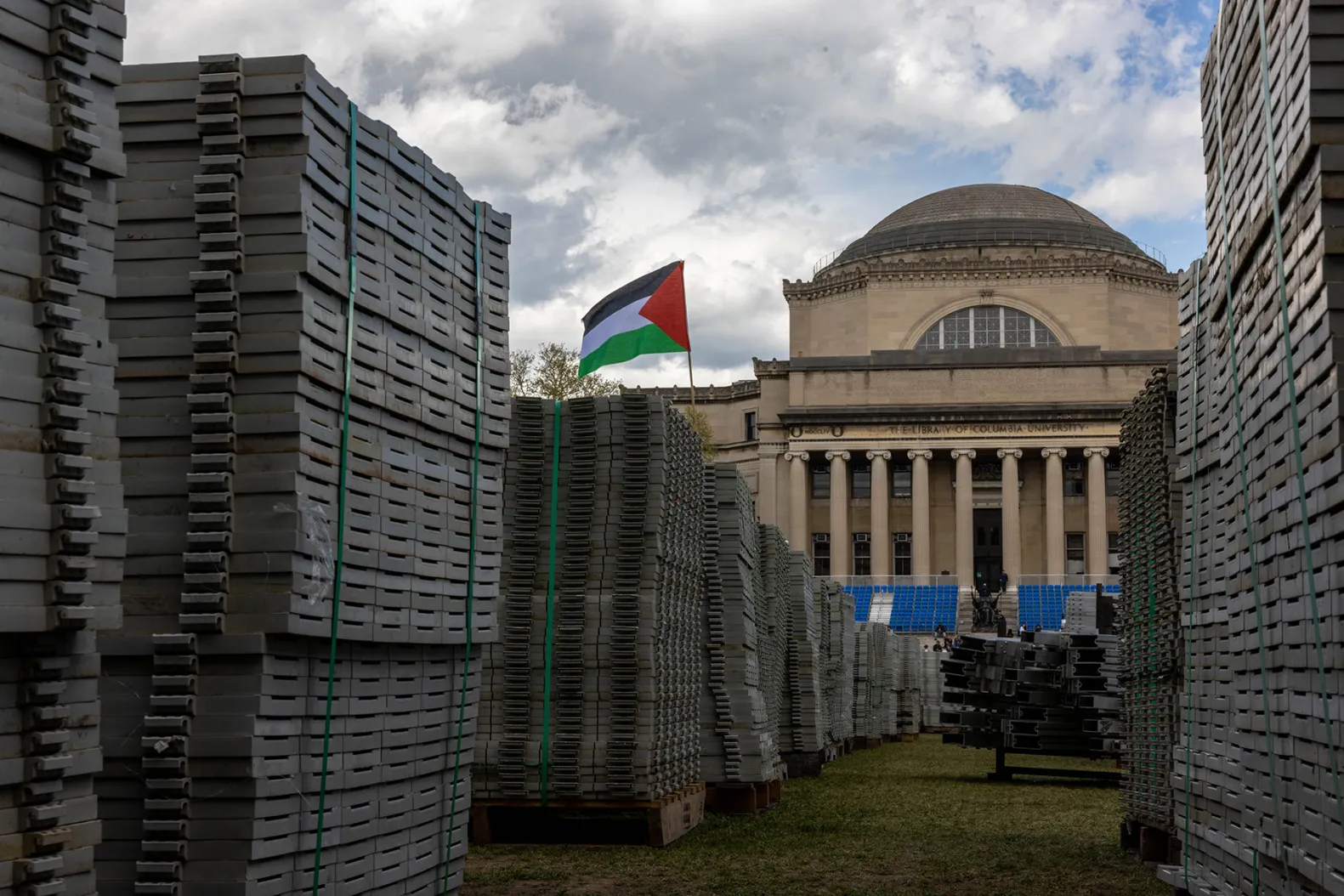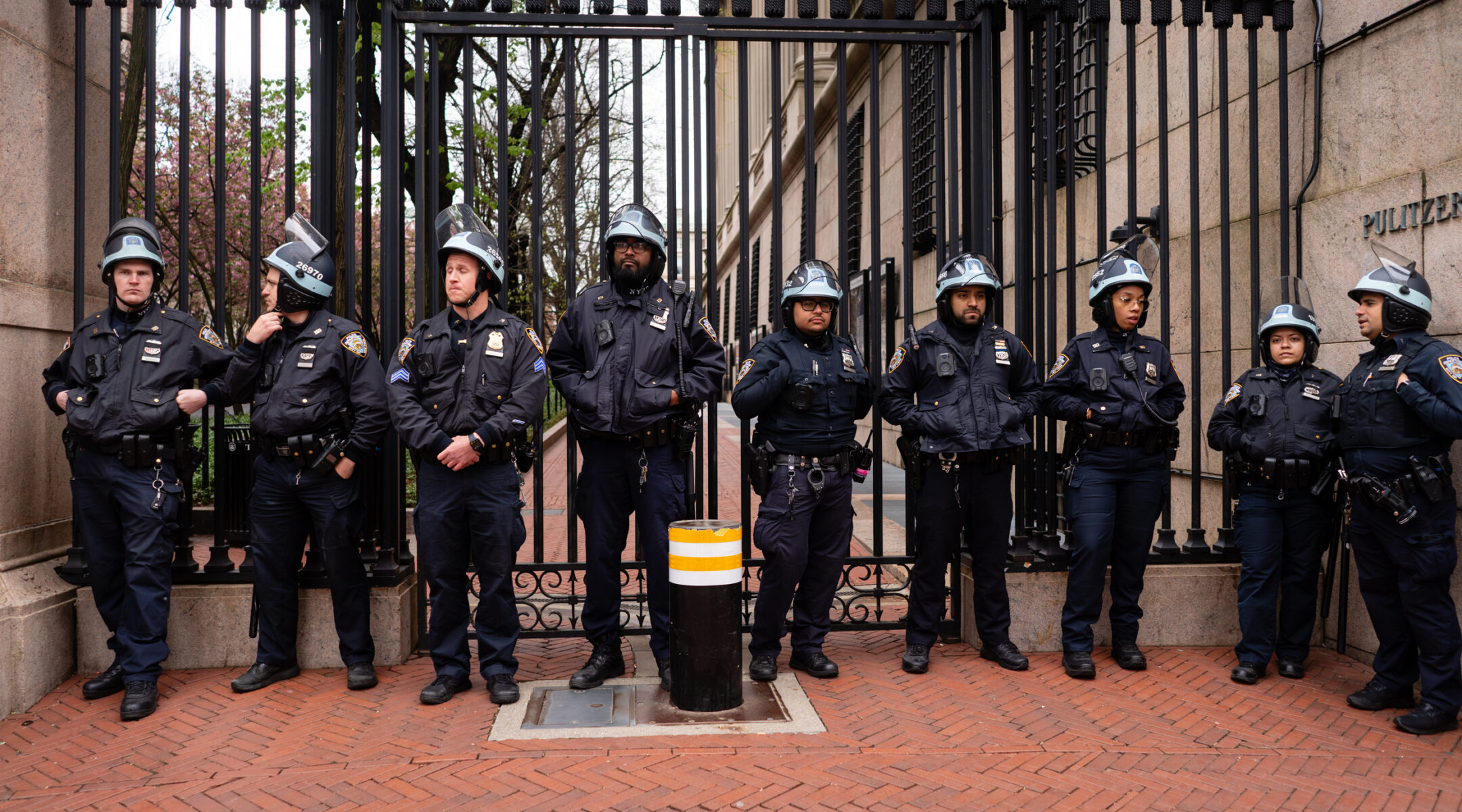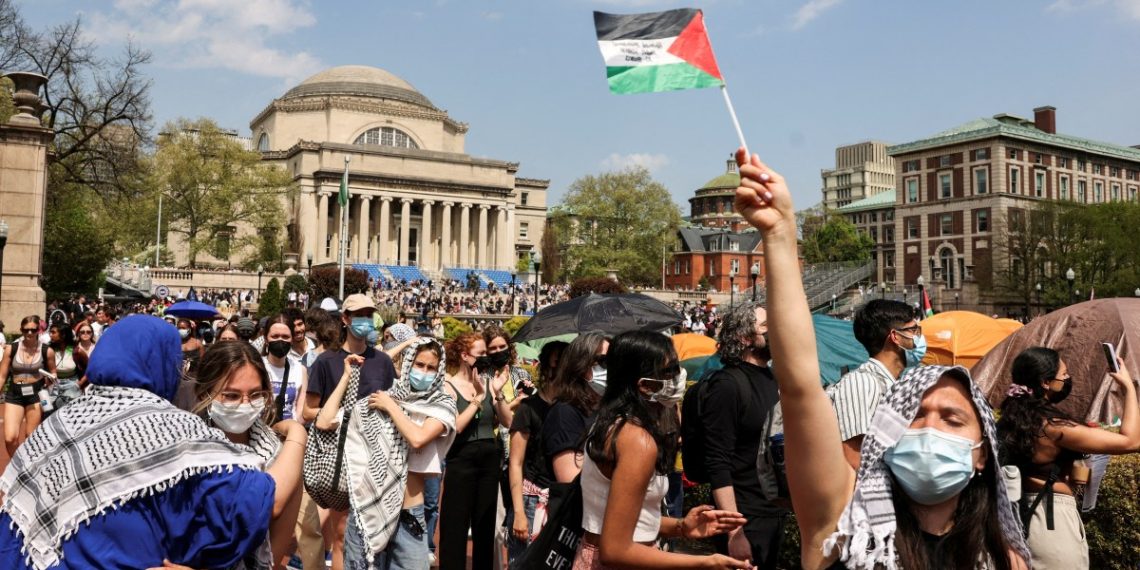Columbia University made the difficult decision to cancel its main graduation ceremony in response to ongoing pro-Palestinian protests that have disrupted the campus atmosphere.
Despite attempts to secure an alternative venue, concerns over security overshadowed efforts to proceed with the event as planned.
Ben Chang, a spokesperson for Columbia University, expressed disappointment over the cancellation, citing the logistical challenges of accommodating the large number of attendees while ensuring their safety.
The graduation ceremony, initially scheduled for May 15, will be replaced by smaller, school-based events.

The protests at Columbia have gained national attention and have served as a catalyst for similar demonstrations at universities across the country.
Students are advocating for a ceasefire in Gaza and calling for their institutions to divest from companies with ties to Israel.
The cancellation of the graduation ceremony underscores the impact of the protests on-campus activities and highlights the complexities of balancing free speech with ensuring campus safety.
While Columbia consulted with student leaders in making the decision, the university’s inability to host the event reflects the disruptive nature of the demonstrations.
The situation at Columbia mirrors challenges faced by other universities grappling with protests amid heightened tensions.

Institutions like the University of Southern California have also been forced to modify or cancel commencement ceremonies due to security concerns stemming from protests.
The decision to cancel the graduation ceremony comes amidst broader political tensions, with pro-Israeli and pro-Palestinian demonstrators engaging in demonstrations across New York City.
These events have become a focal point in the lead-up to the upcoming U.S. presidential election.










